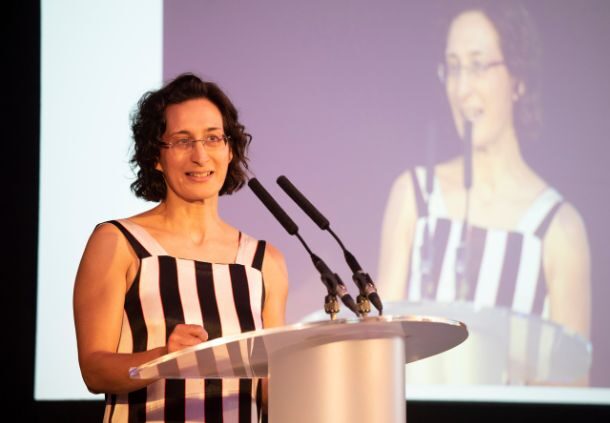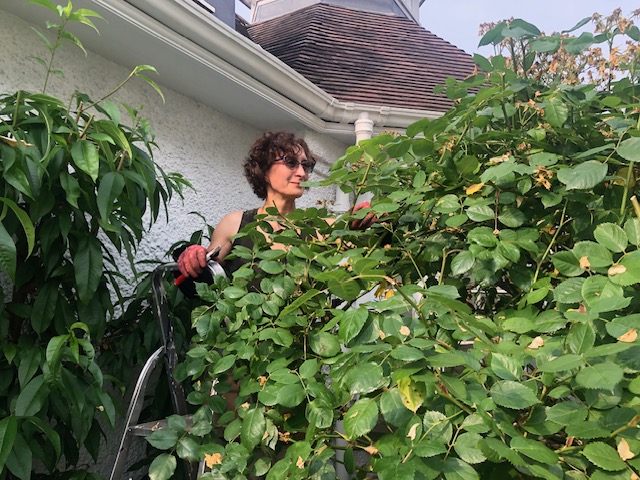
Since joining UHSussex in April 2023, Professor Catherine Urch (Katie), Chief Medical Officer is pouring her energy into meeting with colleagues across our hospitals to discover more about her new Trust and see where she can make the biggest difference. But Katie’s appetite to learn, galvanise teams and challenge norms is nothing new – as seen from her early classroom days, through to her ascent as a junior doctor on cancer wards.
Katie grew up in South-West London into an academic household with four brothers. She describes being the first female born into her family for 75 years: “I could either argue my case or end up doing the washing up”, she quips.
Her tenacity was engrained from a young age and often marked her as different from her peers. At the local comprehensive school, she remembers being excluded from class for finishing her classwork too quickly. And when she was only allowed to study ten O-levels, she decided to study two in her spare time – because she could.
With a strong early desire to become a doctor, and a love of books and science, her entry into the medical profession was relatively plain sailing. But it took her a while longer to find her specialism in palliative medicine.
Speaking up, standing out
“After a few years of general medicine, I realised what I really enjoyed, was using a range of medicines to help patients who were having gruelling chemoradiotherapy treatments.
“Back in the early nineties, these processes used horrid drugs without much efficacy. And it was a paternalistic and male-dominated environment.
“There were often ward rounds of 20 doctors who would pass by the beds of dying patients in a swathe of white coats, as patients with severe vomiting or pain may not be considered fit enough for treatment or escalation.
“Through helping to control their symptoms, I not only helped them to feel more comfortable, I could demonstrate their resilience, and in some cases influence the continuation of treatment. I also wanted to make sure they were treated compassionately. I’ve always felt fired up about fairness and equity.”
This was only the start of Katie realising her potential to influence compassionate care, as she went on to complete a PhD in neural pain pathways. Her post-doctoral work saw her demonstrate the management of bone pain as a unique entity, for the very first time.
Leading by example
However, it was Katie’s achievements at Imperial College Healthcare NHS Trust, where she was the Trust lead for cancer, and latterly the divisional director of surgery, cancer and cardiovascular services – of which she is most proud.
“I didn’t purposefully go into leadership. I just perceived that I was seeing patients at the palliative care end who should never have got there – the system was failing them. I went to see my Chief Executive at the time to highlight how awful it was, and he gave me a year to turn it around. If no one else was going to do it, I had to have the courage and conviction to do it myself.
“I looked to the Kings Fund, and the work they were doing around co-design. We launched by putting on 100-day events, where patients and their stories were crucial in shaping our new strategy. The purpose was to equip my team with the inspiration and knowledge they needed to make changes, and I continued this approach at every transformation point after that.
“The whole of the cancer system went from failing in all respects, to a system that was robust and effective, with patients embedded at the centre.”
New pastures and opportunity
The post- pandemic lull gave Katie a chance to consider what she wanted to do next. After eight years in an executive leadership role, and with little movement in other senior roles across her organisation at the time – her sense of ambition prevailed.
“I had an appetite to be part of one more big change. The team, scale and complexity of UHSussex appealed, and I recognised it had good bones – from the investments being made, to the Patient First philosophy at its heart.
Despite the disappointment of the recent CQC inspection, Katie credits teams’ cohesive and supportive response, and the want to rebuild and move on. As for her focus areas looking ahead – she believes the only way is up.
“There’s a lot to do – and for me, unification is key. Of course, it’s natural to look back at what went before, and the illusion of greener pastures. But the only way we will move forward into a new reality is by living in it. There are truly some amazing people at the Trust, and a real positive will be showing the benefits of partnership working, bringing to life our unique skills and expertise.”
In the meantime, when she’s not hopping between hospital sites, you’ll find Katie in her garden. “If I need to think through something, it will call for a vigorous bit of weeding. The weeds come off worse!”
